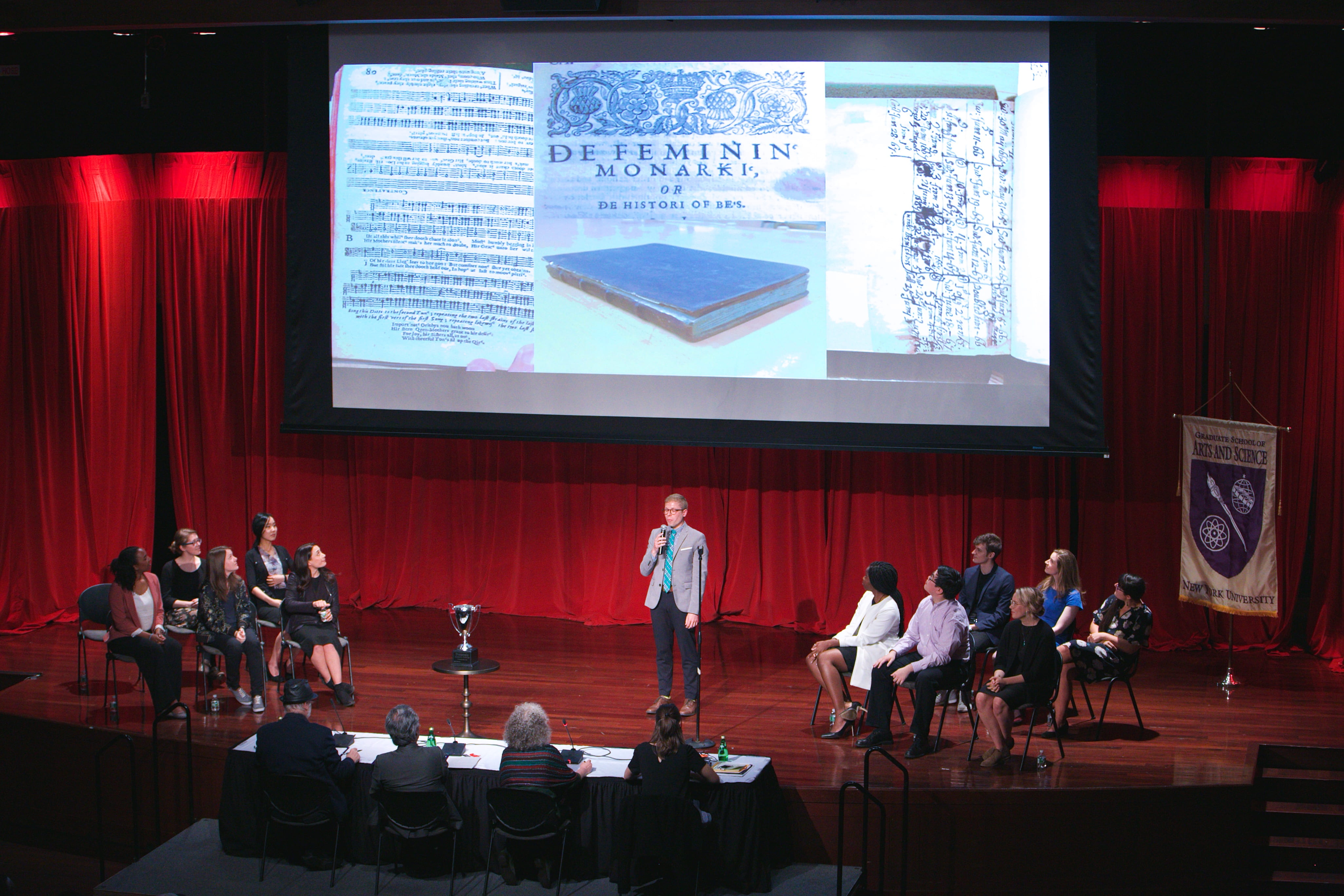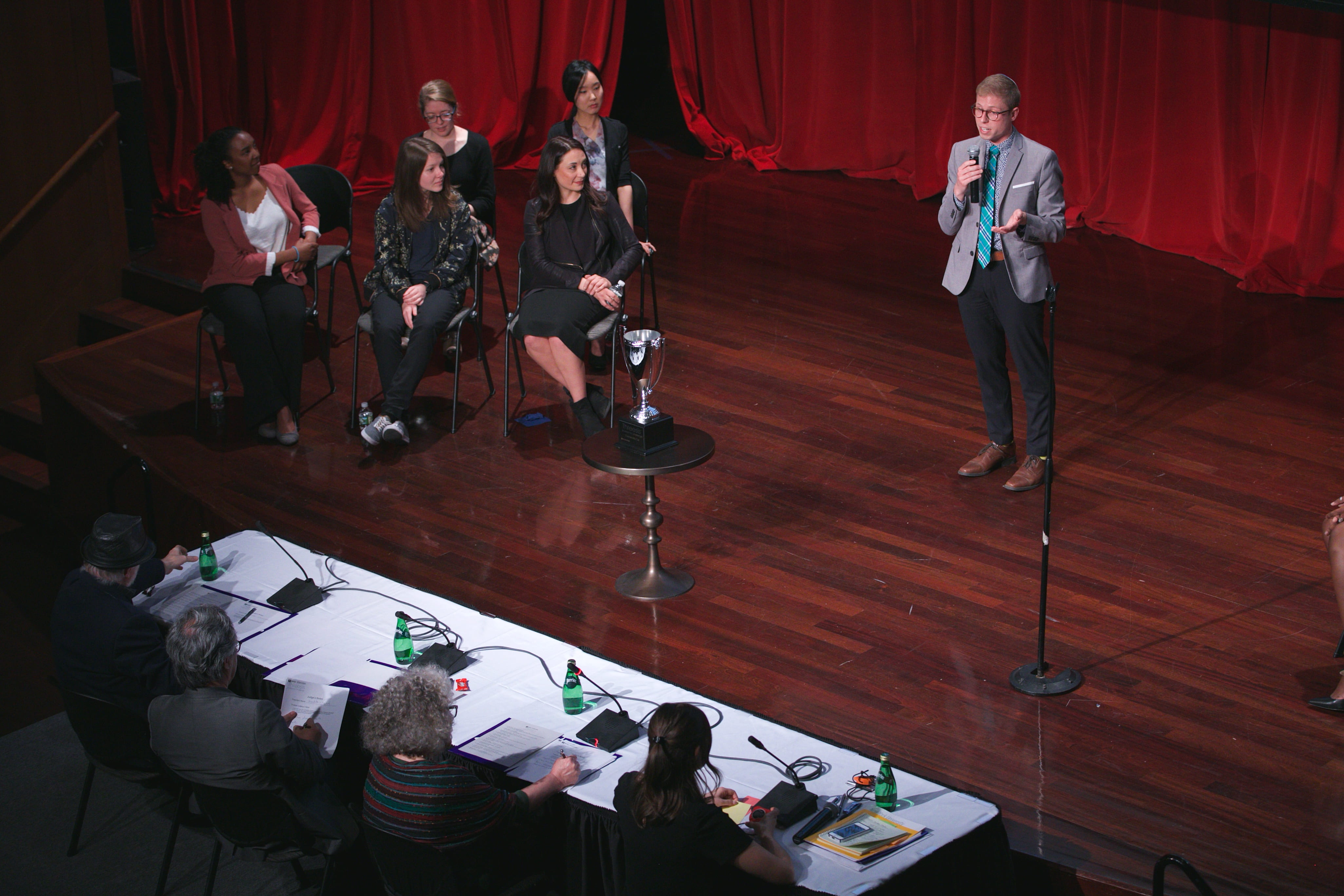 Joshua Kruchten at the 2017 GSAS Threesis Academic Challenge
Joshua Kruchten at the 2017 GSAS Threesis Academic Challenge
As Joshua Kruchten reached the final semester of his master’s degree program in English at NYU, he applied to the 2017 GSAS Threesis Academic Challenge and competed as one of twelve participants in the Final Round of the competition to earn third place. Titled, “How to Read a Booke of Bees,” Joshua’s Threesis presentation focused on the work of his thesis — an investigation into the 17th-century book The Feminine Monarchie, an English book about beekeeping and the first book to claim that a beehive was led by a Queen Bee and not by a King. This research challenged him to consider the attitude towards women and power in early modern Europe, which provoked questions in his current research that concerns “scientific” and “literary” experimentation in books during the Renaissance.
“When I had a copy of the book [The Feminine Monarchie] in my hands at the New York Public Library,” Joshua explains, “I realized that this strange hybrid book was not a simple treatise, but a proto-scientific lab notebook, a religious treatise, a mixture of fiction and non-fiction, and a cookbook.” His interest in beekeeping manuals stemmed from his background in molecular biology and has expanded into 16th-century French and Italian texts, including “forgotten epic poems about bees, gardening manuals, [and] poems or devotional materials meant to accompany experiments at home.”
 Joshua Kruchten at the 2017 GSAS Threesis Academic Challenge
Joshua Kruchten at the 2017 GSAS Threesis Academic Challenge
Joshua is currently earning a double Master’s from the University of Strasbourg and the University of Bologna. During the spring of 2017, Joshua accepted a scholarship from the European Union to participate in a European Master’s program and now takes classes in French and Italian where he relishes the ability to “reach out and touch the past.” He has published an article in French in the Revue de la Bibliothèque Nationale et Universitaire and aims to pursue a doctoral program in order to continue his research and teaching in what he hopes will be meaningful and politically engaged. He recently reviewed The Casebook Project which highlights the interdisciplinary, qualitative and quantitative potential digital technologies can offer scholars.
These goals stem from the education he received from GSAS, which Joshua says helped him develop “the intellectual tools [he] had been taught to use — and the confidence that [his] professors and experiences like Threesis helped me to develop.” Specifically, “Threesis forced me to more precisely articulate the questions that drove my research,” he describes, “and more than that, to explain why they mattered to an unfamiliar audience… Threesis was one of the more powerful moments of my time at NYU where I felt myself surrounded by people who, despite the many challenges facing us, were deeply moved and motivated by their own research and wanted to explain why it mattered.”
As we enter our ninth year of the GSAS Threesis Academic Challenge, we reflect on Joshua’s fascinating graduate work at GSAS and look forward to hearing all about his future successes! Watch Joshua’s winning presentation from Threesis 2017.
Leave a Reply